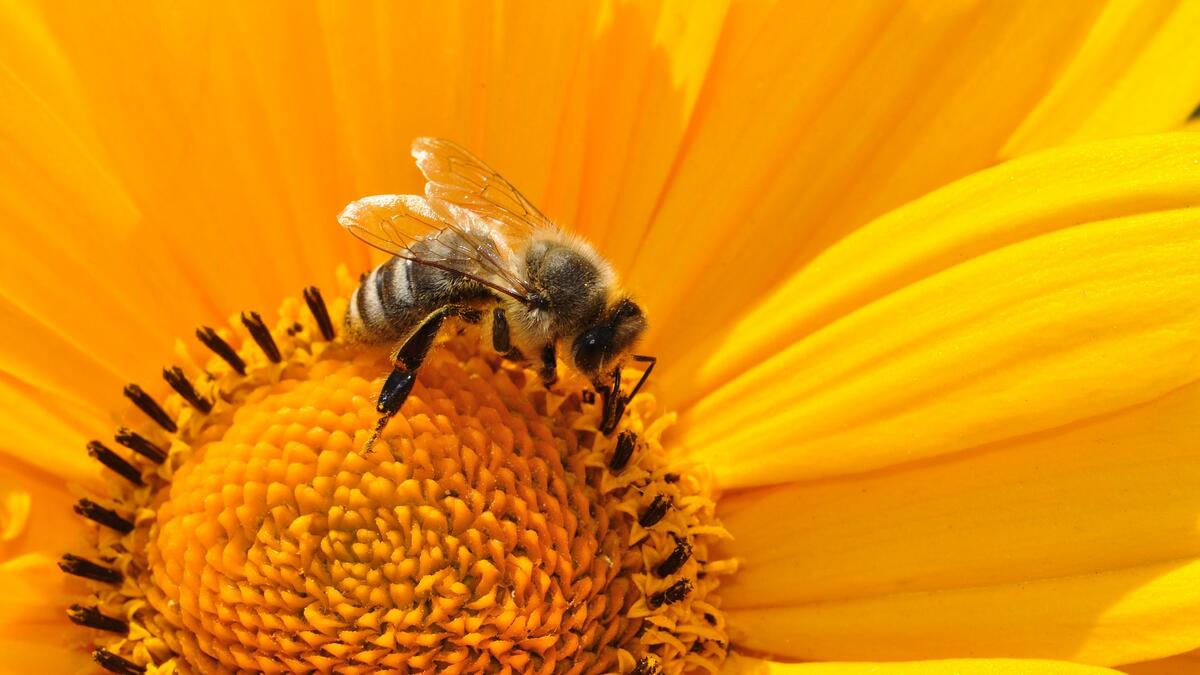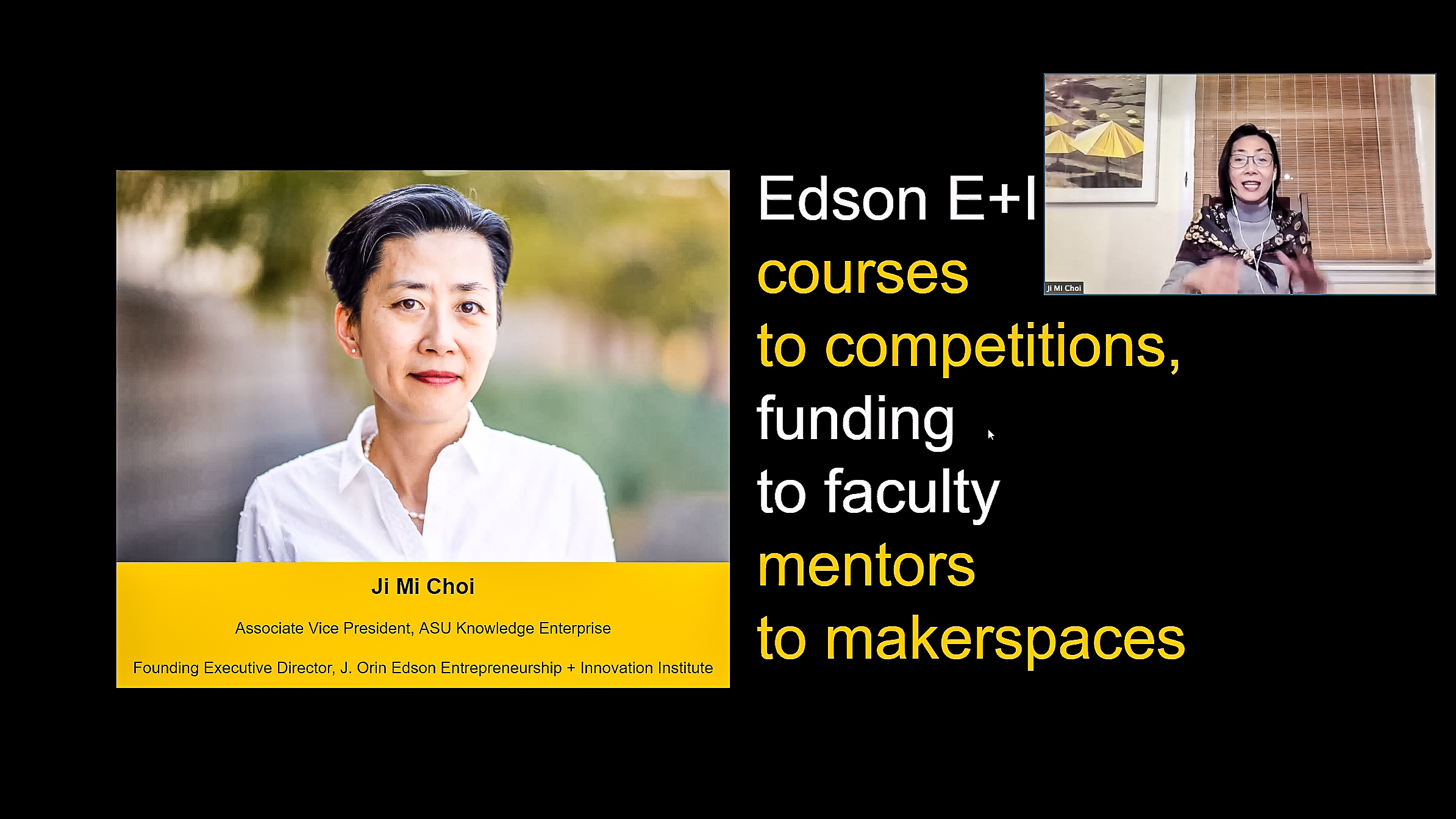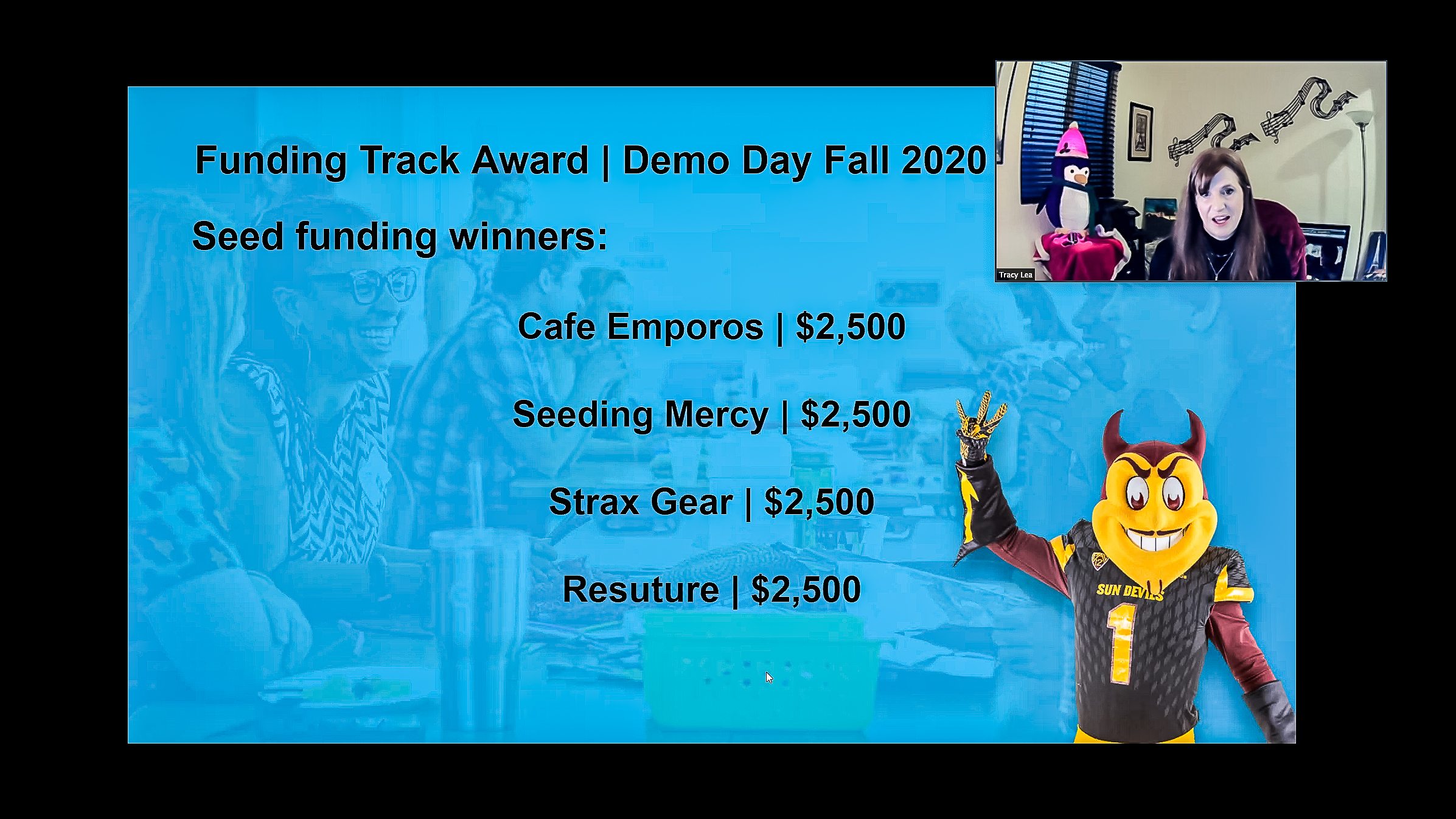ASU research associate wins funding for magazine devoted to saving pollinators

A research associate at Arizona State University has won a $10,000 investment in the new magazine she founded to inspire people to save the world’s pollinators.
Kirsten Traynor, a research associate in the Global Biosocial Complexity Initiative at ASU, won the money in the Ashton Family Venture Challenge during the Demo Day pitch competition on Dec. 4.
Traynor, who received her PhD and master’s degrees from ASU, launched the 2 Million Blossoms quarterly print magazine in January and already has 1,700 subscribers.
Many of the subscribers are beekeepers or other professionals, but in her pitch video, Traynor said she also hopes to reach the average person.
“Why pollinators? Our insect biodiversity is disappearing, our meadows shrinking and our pollinators falling silent as they wink out of existence,” she said, noting that more than 70% of the world’s insects have been lost in the last three decades.
“Protecting pollinators has become a booming business. People want to help but they don’t know how.”
The magazine includes beautiful photography and articles that highlight small steps that everyone can take.
Traynor will use the money to revamp the website, create a subscriber management database and market the magazine.
John Ashton said that the judges selected Traynor because of her strong business plan.
“What is most invigorating for me is that they have a really strong, passionate leader with a strong background, and that comes through,” he said.
Traynor was one of more than 40 Venture Devils competitors that put together five-minute pitch videos. The Demo Day awards ceremony was livestreamed, with 31 teams winning a total of $143,500 in funding.
Ji Mi Choi, founding executive director of the institute and associate vice president of ASU Knowledge Enterprise, describes how entrepreneurs are supported during the Demo Day livestream on Dec. 4. Screen grab by Charlie Leight/ASU Now
Venture Devils is a program to support ASU students, staff, faculty and community entrepreneurs within the newly named J. Orin Edson Entrepreneurship and Innovation Institute at ASU. Over the past five years, the entrepreneurship initiative has grown to include 44 team members and more than 40 venture mentors and has raised about $40 million of external funding, according to Ji Mi Choi, founding executive director of the institute and associate vice president of ASU Knowledge Enterprise, who has led Entrepreneurship and Innovation since 2015.
“One thing I can guarantee is that everyone here has been on this journey with you,” Choi said during the awards ceremony.
“We are your ‘friends and family’ round because we’re here to invest in your ideas.”
One new program this year was Venture Devils Plus, in which previous winners got additional support to advance their venture.
Tracy Lea, associate director of venture development for the institute, announced Demo Day winners. Screen grab by Charlie Leight/ASU Now
“It was, ‘OK, we awarded them $10,000 and how are they doing?’” said Tracy Lea, associate director of venture development for the institute.
“We identified a gap that showed that they built the thing, the thing works, but how do they go to market with that idea?”
The institute also added support for teams that are trying to launch a nonprofit and plan to add venture-funding tracks devoted to medical technology and arts.
Besides the $10,000 awarded to Traynor by the Ashton Family Venture Challenge, the fall 2020 Demo Day winners were:
The eSeed Social Impact Challenge awarded $12,500 to five winners: Godsway’s Gari Factory, founded by Godsway Dorlah to reduce postharvest loss of food in Ghana, $5,000; Progressive Path, James Cook, $4,000; LEMNA, founded by Travis Andren, a company that’s working on the bioremediation of farm wastewater, $1,500; and $1,000 each to Wheelchair Solutions, launched by Mikayla Gerdes, and Water Works, Marina Filipek.
The J. Orin Edson Entrepreneurship and Innovation Institute Fund awarded $2,500 each to four ventures: Café Emporos, Ruben Trujillo; Seeding Mercy, an anti-hunger initiative started by Aken Tong; Strax Gear, a gear-organization system invented by Sean Dicke; and ReSuture, which creates lifelike simulations of surgical procedures and was founded by Hannah Eherenfeldt, who also received an in-kind gift of development services worth $5,000 from Spanner.
The Global Sport Venture Challenge awarded $16,000 to eight ventures: Fanalyze, a search engine for fantasy sports, Juan Juan, $5,000; Temp Defender, a wearable technology venture, Abigail Davis, $3,000; Navajo Mountain Bike Initiative, which hopes to create a business opportunity for the Navajo Nation and recreation for the community, Peter Bugala, $3,000; and $1,000 each to Freebowler, Pratheek Palanethra; GMDY, Danny Harris; Wild Portals, Michael Anthony Wild; Wager Champs, Rayan Vatti, and REV Canvas, Rebecca Varney.
The Hool Coury Law Grad Tech Challenge gave out $20,000 to three ventures: Illusions Software, co-founded by James Spisak, which works to bring automation solutions to skilled workers in the IT industry, $10,000; Eyesbox AI, founded by Kar Ken Chang, technology that turns a refrigerator into a smart fridge, $7,000; and Galleri, a digital, subscription-based contemporary art gallery founded by Elizabeth Deitchman, $3,000.
The eSeed Accelerator awarded $25,000 to five ventures: Urban Construct, a real estate search engine founded by Derek Uche Anaeme, and StreamWork, a streaming site for students to do academic work together, founded by Jared Hsu, both won $7,000. The other winners are OpGuard, a safe way to dispense opioid medication, Bradley Willett, $4,000; PlantBaked, a vegan cookie dough, Victor Novelo, $4,000; and GoSurf, Aleksei Stojanovic, $3,000.
The Edson Student Entrepreneur Initiative awarded $10,000 each to five ventures: Optical Waters, founded by Mariana Lanzarini-Lopes, a venture to use germicidal optical fibers to enable ultraviolet disinfection to prevent biofilm infection; StormStick Decon, founded by Jason Miller, a system to reduce cancer risk by quickly removing toxins from firefighters’ protective equipment so they cannot be absorbed through skin or breathed into lungs; Stonne Products, Jaron Lodge, a venture to reinvent the activity of skipping stones; Dext Technologies USA, founded by David Nkansah, an initiative to provide experiential science kits to children; and Peer Squared, by Michael Wang, a systematically integrated peer tutoring program for K–12 students.
Andren, Spisak and Deitchman are all in the new Master of Science in Innovation and Venture Development program, a new degree that's a partnership among the Herberger Institute for Design and the Arts, the Ira A. Fulton Schools of Engineering and the W. P. Carey School of Business.
The winning ventures’ pitch videos can be seen on YouTube.
Top photo courtesy Pixabay
More Business and entrepreneurship

With help from ASU and a viral TikTok, an entrepreneur soars
Nearly five years ago, Ruben Trujillo saw his entrepreneurial dream slipping away as he wondered how he would pay his rent.Now, Trujillo’s business, Café Emporos, is featured on a national TV…

Honoring 2 decades of entrepreneurial impact on a global scale
Thunderbird for Good, the impact-driven initiative of Thunderbird School of Global Management at Arizona State University, is marking two decades of educational programs and initiatives dedicated to…

ASU and GoDaddy launch Student Athlete Venture Studio
In a groundbreaking initiative aimed at empowering college athletes beyond their playing careers, Arizona State University and GoDaddy teamed up to launch the first-of-its-kind Student Athlete…



